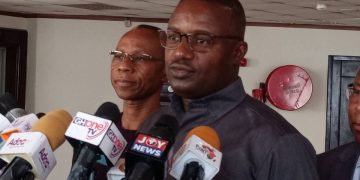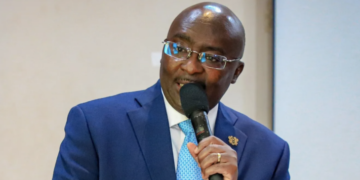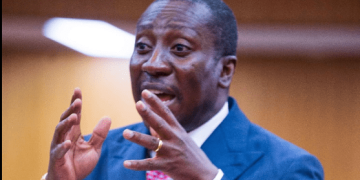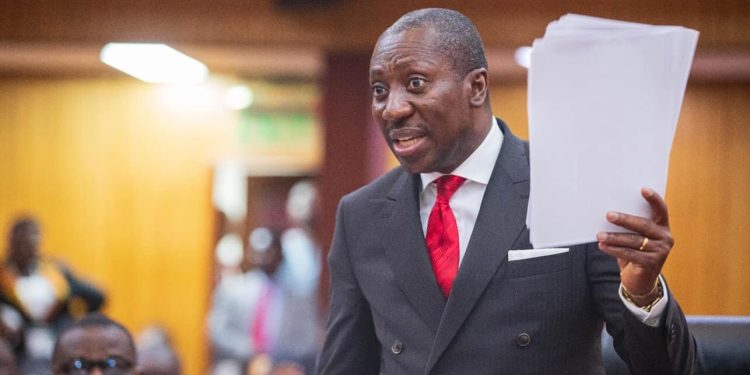Majority Leader Alexander Afenyo-Markin has requested another emergency sitting of Parliament to address pressing national issues following its indefinite adjournment.
Afenyo-Markin stressed the importance of addressing some urgent government business left unattended after the adjournment of Parliament’s Sixth Meeting on November 7, 2024.
In a memo dated November 22, 2024, addressed to the Speaker of Parliament, Rt. Hon. Alban Bagbin, the Majority Leader detailed a comprehensive list of critical issues awaiting Parliament’s attention.
These include tax exemptions for the One District, One Factory Programme; Ghana Financial Stability Fund: Approval of a $250 million facility from the International Development Association to bolster economic resilience; Consideration of the President’s nominations for appointment as Justices of the Supreme Court; the ratification of agreements for the exploitation of lithium in the Central Region and bauxite in the Ashanti Region.
The House is expected to also consider some outstanding Bills including the Environmental Protection Agency Bill, the Free Secondary Education Bill, and the Intestate Succession Bill, among others.
Afenyo-Markin underscored the urgency of the recall and appealed for bipartisan cooperation, especially as the nation approaches the December 7 general elections.
He proposed 28th and 29th November 2024 as suitable dates for the emergency session, noting that this timeline would allow Members of Parliament to return to their constituencies ahead of the upcoming December 7th General Elections.
“Reconvening Parliament at this juncture would send a powerful message of national unity and institutional stability.”
“It would demonstrate that Parliament remains steadfast in its constitutional duties and committed to advancing the national interest,” he stated.
The Majority Leader further emphasized that recalling the House would allow Members of Parliament (MPs) to fulfil their legislative responsibilities before returning to their constituencies to campaign.
The request invoked Parliamentary Standing Orders 57(3) and 58(4), which grant the Speaker the authority to summon an emergency sitting when deemed necessary.
Afenyo-Markin stressed, “Order 57(3) allows the Speaker to summon a sitting of the House before its adjourned date or after it has adjourned sine die. Further, Order 58(4) removes the requirement for a 14-day notice in cases of emergency.”
Mr. Afenyo-Markin pointed to the Supreme Court’s recent ruling on Article 97(1)(g) and (h), as an opportunity to begin on a clean slate and urged the Speaker to seize the moment to foster bipartisan cooperation and advance national development.



















































































